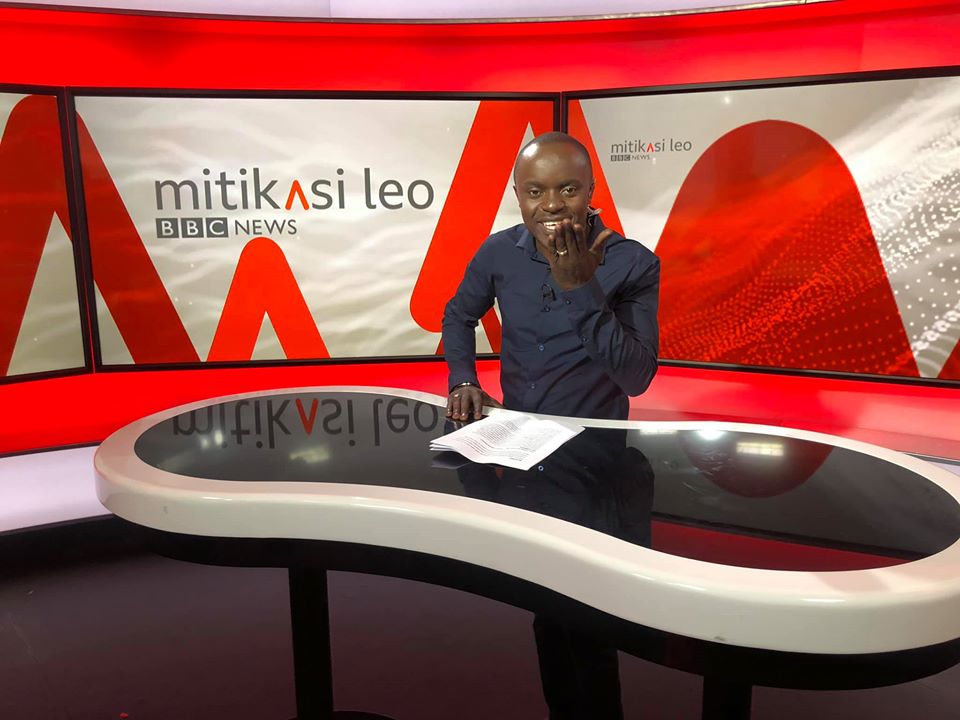BBC Africa has moved to replace Larry Madowo, who travelled abroad for studies in August this year.
After he left, BCC Africa invited applicants to fill the position on an interim basis, meaning the holder would relinquish the post when Madowo returns from the US.
It has taken over three months – and two interviews – for BBC to find Madowo’s replacement from over 10 candidates, who included a few external applicants. Caroline Korobia, who is in charge of Kiswahili section, has been acting Business Editor for Africa.
Relay acting model
In an announcement made today by the London office, the Africa Business Editor portfolio will now be handled by three editors on a rotational basis.
The three are Zawadi Mudibo, Peter Wakaba and Clare Muthengi. Meanwhile, Caroline Korobia returns to her core area of Kiswahili.
According to the circular read to Business Today, the three will work on attachment at different times for two months each, in some sort of relay model expected to end in May, just in for Madowo’s return at BBC.
First to take the mantle will be Clare, the former CNBC Africa anchor-cum-reporter, who will act as business editor in December 2019 and January 2020. She will then hand over the baton to former KTN Business Editor Peter Wakaba, who will run the desk in February and March.
Read Also >> Meet Kenyan Journalists Who Have Made a Mark on International TV
Zawadi Mudibo, who moved from K24 where he was deputy business editor, will handle the final lap and hand over the baton to its rightful owner. That is if he comes back.
There is speculation that Madowo, who is studying business and economics at the prestigious Columbia University, in New York City, could either be deployed to the London office to the BBC World Service or move on to a new job. That will be good news for either of the three acting editors, more so Zawadi, who will be the last to hold the baton.
Battle for the crown
In terms of experience, the three have what it takes having worked in the field for a good number of years. Zawadi, though, will have the advantage of understudying the first two movers and learning from their mistakes, then improving his act.

BBC insiders say the rotational system has been deployed to build internal talent that can be utilized within the media house’s ecosystem. It is also seen as a safer way of managing newsroom interests and egos among journalists who see each other as equals.
See Also >> Standard Newspaper Reels After Sacking Political Reporter
At the end, the three will be judged and ranked on their performance, which will hoist them a step above their colleagues and in pole position in case a promotion arises either at the Kenyan office or at the headquarters in London.
Insiders say the interviews for the position were “very competitive” with nearly half of the journalists at the Kenyan office applying. After the first take, the company re-advertised the job for the second round of interviews before eventually narrowing down to the three.
Fellowship
Larry Madowo was a beneficiary of the 44th Knight-Bagehot Fellowship in Business and Economics at the Columbia Journalism School.
The fellows come from top media publications and their work has been published in Bloomberg, MarketWatch, Quartz, Politico, Mother Jones, BBC, Africa Report, The Washington Post, Reuters, and The Journal News in White Plains.
Next Read >> Betty Kyalo’s Reveals the Nasty Life and Scars Behind Her Pretty Face












Leave a comment